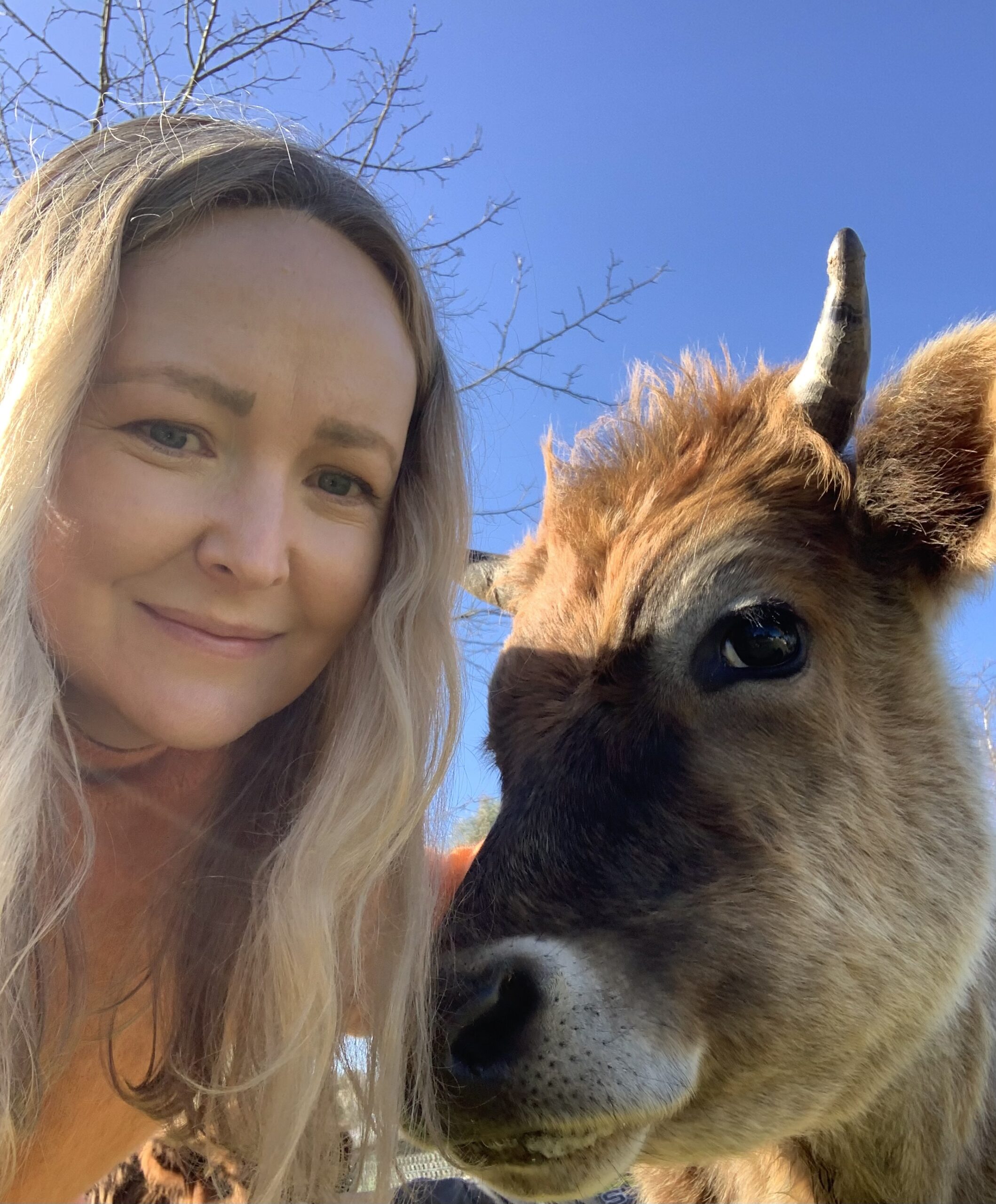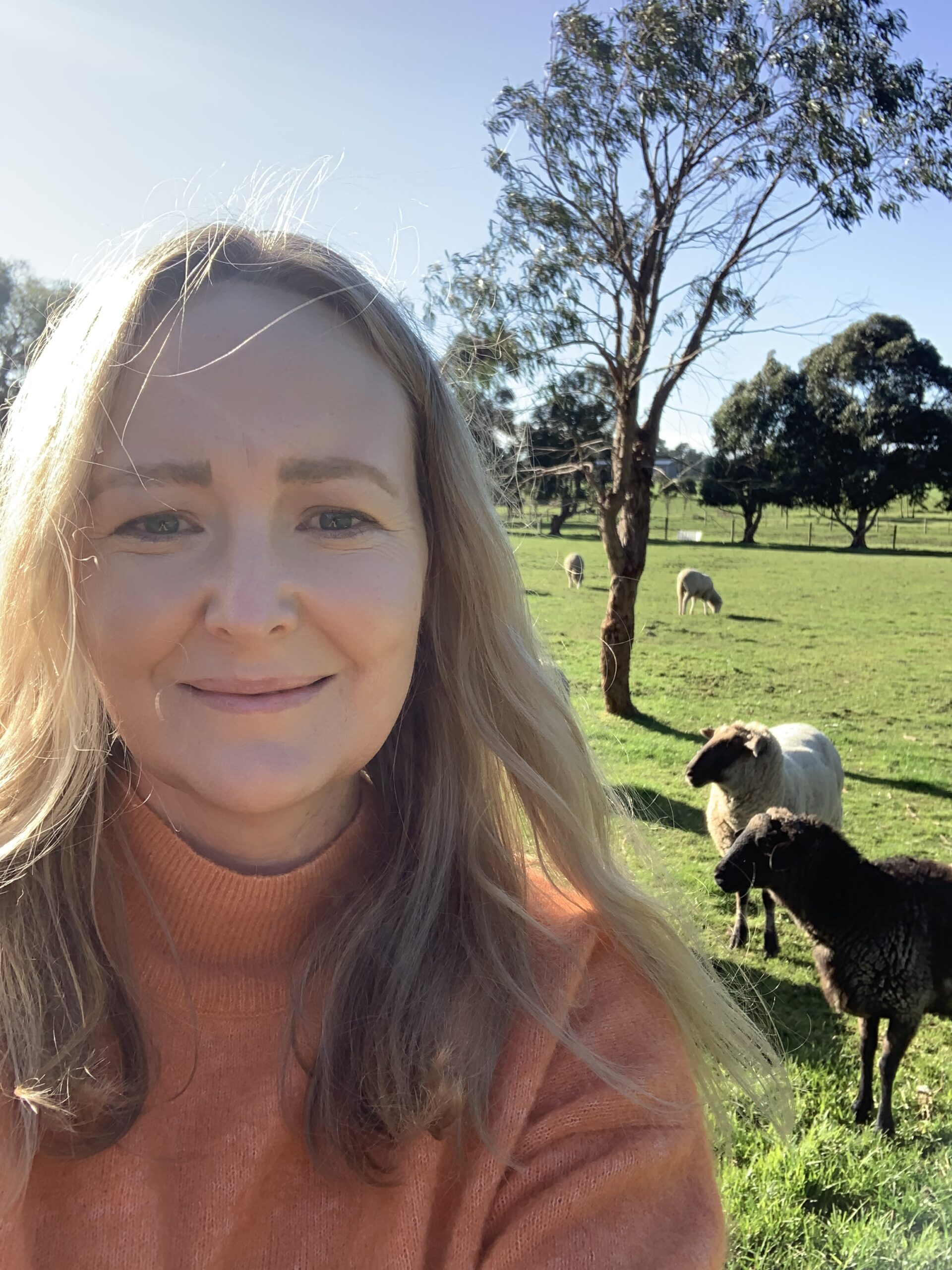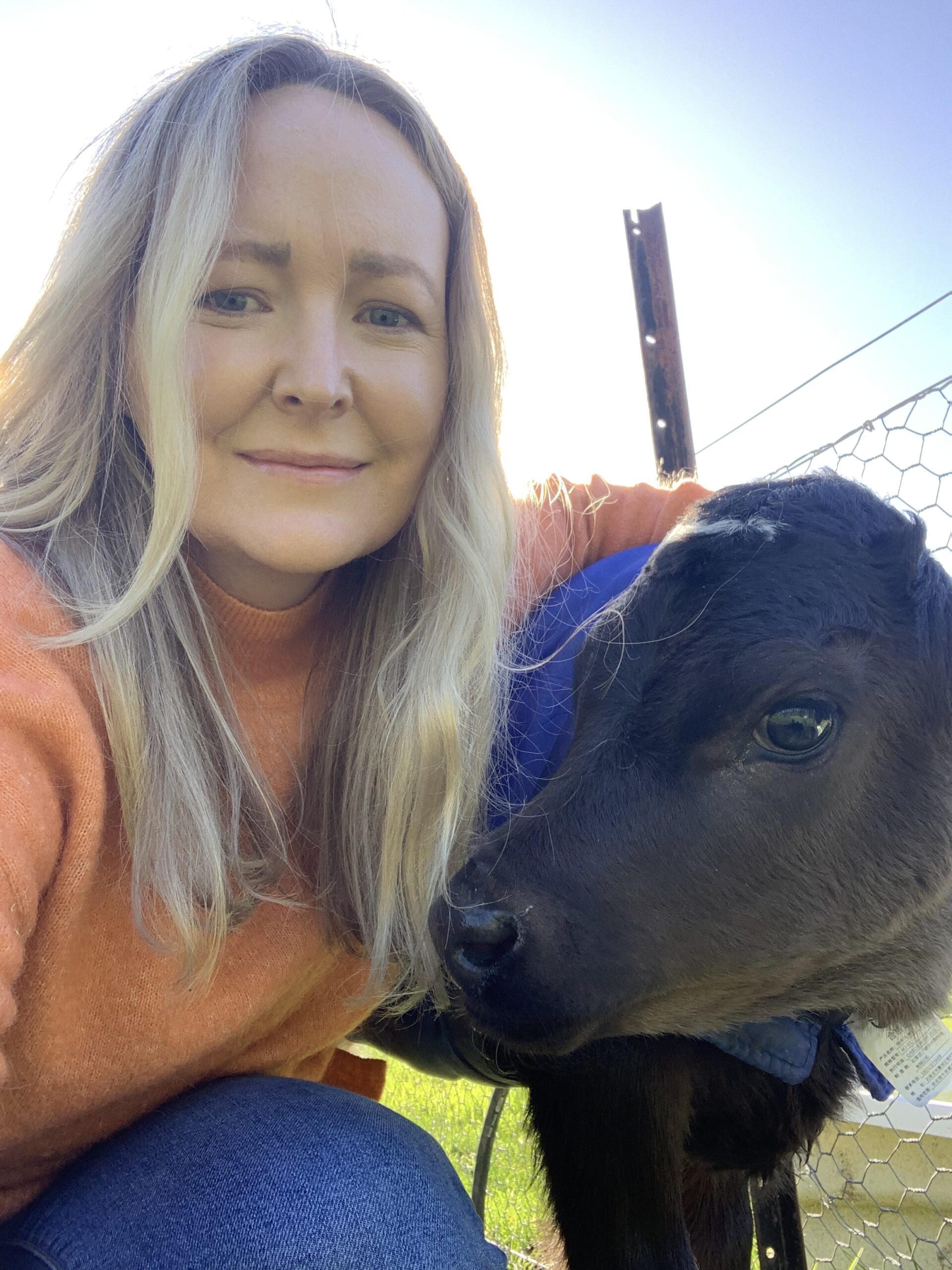Rachele Clarke: CEO of 'Til The Cows Come Home animal sanctuary



Farming Family Agree Live Export Should End
Rachele Clarke was born on the land.
Her parents were fifth-generation cattle farmers in rural Queensland and Rachele grew up surrounded by animals destined for Australia’s food system.
It was watching her father regularly butcher cows, coupled with the deep love of animals she developed as a child, that took Rachele’s life in a very different direction to that of her family.
Today, the mum-of-two, is the CEO of ‘Til The Cows Come Home animal sanctuary, a charity that transforms the lives of unwanted farm animals through rescuing and rehoming them – a role she acknowledges takes her back to her roots in a very different way.
Given their diverging life paths, it’s not hard to imagine that Rachele and her father have differences of opinion when it comes to the food they choose to eat (Rachele is a committed vegan) and how animals destined for dinner plates are treated.
But there is one area in which they absolutely agree. Despite their contrasting perspectives on animals bred for food, Rachele and her dad are both firmly against the live animal export industry.
“Dad absolutely hates live exports, he’s disgusted by the cruelty inherent in the long and arduous journeys that sheep and cattle are put through, by road and by ship,” explains Rachele, who has also worked in public health and in the corporate sector during her career.
“These are land animals, they have complex social networks, and my dad is in furious agreement that journeys overseas are torturous for these gentle creatures, who have feelings just like dogs and cats do.
“There’s the heat, the lack of fresh air, the seasickness, being thrown around as the ship rolls and pitches in the open ocean, our family thinks that putting Australian animals though such a horrendous experience is completely unacceptable.”
Despite their strong stance on live export, Rachele is quick to point out that she, and her family, are not against farmers.
“How could we oppose the farming community when we have five generations of farmers in our own family and understand farm life so intimately?” she says.
“What we are against is the fact that Australia has absolutely no control over how these animals are slaughtered when they arrive in importing countries. Farm animals that are born and raised here in Australia have no safeguards or protection when it comes to being killed overseas, which happens while they are fully conscious and terrified.
“Instead, they should be slaughtered in regional towns, close to where they are reared, thereby sparing them from the horror of live export whilst helping rural towns to flourish and boosting the regional economy by creating more local jobs.”
As part of her work for one of Australia’s most dedicated farm animal charities, Rachele is exposed to all creatures great and small every day of her working life, including sheep that have often been injured, neglected or mistreated.
“We have foster carers all over the country that take in our animals until we can find them new loving homes, where they can happily live out their lives,” she explains.
“There is nothing more rewarding than watching our rescue animals thrive. When they see their foster carers, the sheep always bounce towards them as fast as they can. If they have a box of Weet-Bix in their hand, seeing the joy on their face is just adorable.
“And then, if we introduce rescued ewes and lambs to a flock, it’s wonderful to see the sheep gravitate towards the new arrivals and become protective of the baby amongst them.
“The reality is that sheep are gentle animals, they feel emotions like joy, happiness and fear, just like any domesticated pet. They just happen to have wool instead of fur.
“Which begs the question, what did they ever do to deserve such horrific and cruel treatment, simply by being born an animal in Australia, where it’s permitted to be shipped alive overseas?
“The live export industry should come to an end. To quote my dad, an 84-year-old farmer who has spent his life on the land, it should have ended yesterday. Tomorrow isn’t soon enough.”
